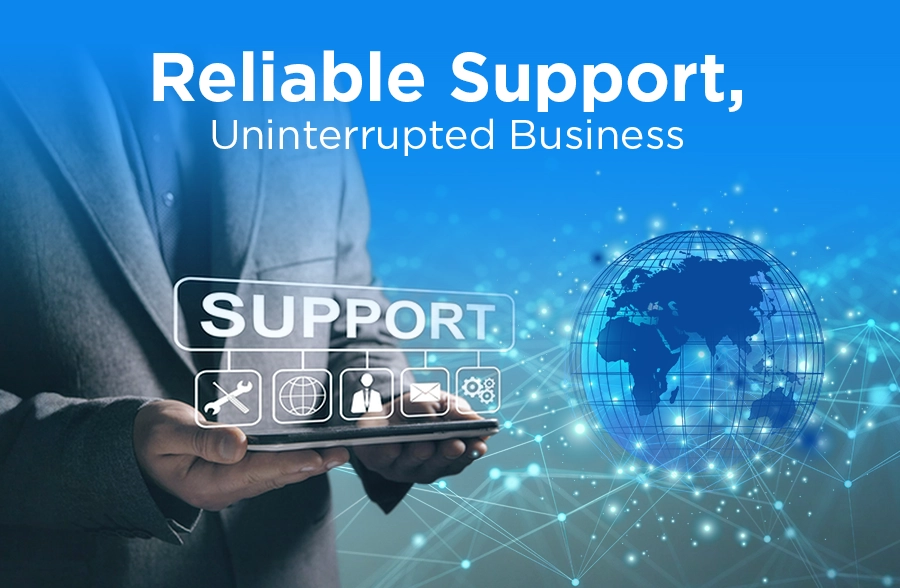Schedule a FREE call with our outsourcing expert now and get a precise quotation that meets your requirements. Don't wait - get started today!
Real entrepreneurs are resilient during economic setbacks. This means you must ensure your business thrives during difficult times. As an entrepreneur, you should think of the best entrepreneurial skills and act without missing a beat, especially during challenging times. If you slow down for a minute, your business will rapidly decline.
The economic crisis in the 21st century
The world has experienced a plethora of economic crises throughout history. While some of them were restricted to only one country or region, many of them affected the entire global economy.
The Digital Age is no exception to economic crises. The sudden rise of Information Technology enhanced the convenience and general quality of modern life. However, this cannot shield the world from strings of economic setbacks.
In the 21st century alone, the world has witnessed a rapid succession of economic difficulties. The US, for one, experienced a series of recessions during the 2000s. In the 2010s, several parts of Europe faced financial crises, and the Chinese stock market crashed. As of writing in 2020, the entire world is currently bracing for the economic impact of the COVID-19 pandemic.
Thriving in a troubled economy
Advancements in IT have aided the increasing globalization of the world economy. As such, a downturn in one region can affect the rest of the world.
As a business owner, you need to take advantage of technology to reach a wider market. At the same time, however, you should also be able to shield your business during volatile times. You cannot allow economic setbacks to halt the operations of your business.
While it may sound difficult to thrive in a troubled economy, it is very much possible. Here are some surefire tips:
Are luxury products and services still a good investment?
As an entrepreneur, you know that high-end products and services can be good investments. During an economic crisis, however, ensuring that you will still have customers is paramount.
Making sure that customers will do business with you means stepping into their shoes. Think like a consumer, and ask whether you should spend money on luxury products and services. Consider that, in these difficult times, your job may be at risk, and your income is declining. Would you still invest in luxury products and services?
The straightforward answer is “no”. Luxury goods and services are not a consumer’s priority in a troubled economy. Investing in such products or services may not be ideal, because consumers would not desire them during a shortage of resources.
If you are offering high-end services or goods, you need to consider your alternatives. For one, you can improve the awareness of your more affordable brands. If you are exclusively a luxury brand, you can offer discounts, create a new brand, or even rebrand.
What do customers need during economic crises?
In an economic crisis, there is often a shift in consumer behavior. The change in your customers’ behavior also changes their needs. Ultimately, this leads to a change in their mentality and buying pattern.
Ask yourself, what do customers need in this situation? Keep in mind that the information you gathered before the crisis is not entirely relevant now. Their income levels may have fallen, and their perspective may have changed, as well.
Shift your focus to necessity goods and services. There are the things consumers will pay for, regardless of changes in paygrade. Some examples of such goods and services include:
- Food
- Water
- Clothing
- Personal hygiene
- Shelter
The situation may also call for a new set of necessities. During the ongoing COVID-19 pandemic, for example, the demand rose for personal hygiene supplies. Personal protective equipment (e.g. face masks, gloves, boot covers, etc.) are in-demand, as well.
Can you disrupt traditional business models?
Economic crises can also create opportunities for innovation. Uber and Airbnb, for example, were able to figure out solutions that empowered regular people, and disrupted established business models. They both created platforms that enabled affordable and convenient self-employment.
Think of ways to innovate and adapt to the current situation. Prioritize innovating from within your company. During the COVID-19 pandemic, for example, enabling remote work is a huge step.
Innovating your business also requires support. For this, you can consider hiring freelancers, or tapping into the BPO industry. Make sure to consider the only the most cost-effective solutions like these US companies that outsource jobs abroad.
Economic setbacks are distressing for entrepreneurs and consumers alike. However, you cannot allow panic to prevail, and bring down your business.
An economic crisis poses a difficult challenge for business owners. It challenges them to prove that they are resilient, flexible, and innovative. To make sure that your business thrives, you have to take up this challenge.
Rising up to the occasion during an economic setback is daunting. If your business successfully gets through this, however, you are able to prove that you are an excellent entrepreneur.

















